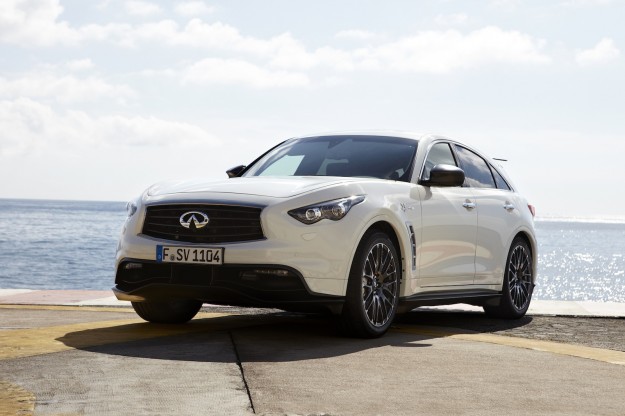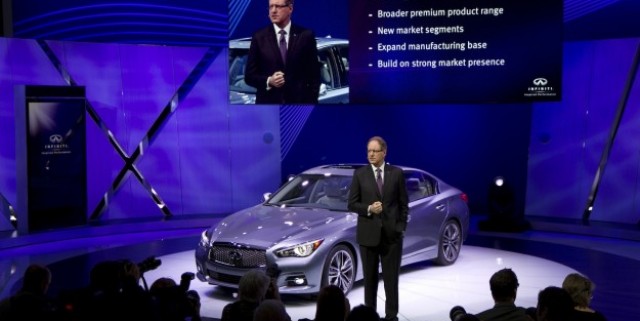
Poached last year after 19 years with Audi, senior vice president of Nissan Motor Company in charge of the Infiniti division, Johan de Nysschen (above), has targeted new model and new market expansion as a priority over outright volume.
Speaking at the Detroit auto show, the Infiniti boss outlined how the company needs to become a global brand, and increase brand awareness, to succeed in the long term.
“I think we need to work, on a global basis, establishing Infiniti as a fully accredited member of the club of premium automotive brands,” said de Nysschen.
“The key phrase there is ‘global’. That has got to be part of the challenge that lies ahead.
“I think we need to prepare for a long-term future. Infiniti needs to have a global presence.”
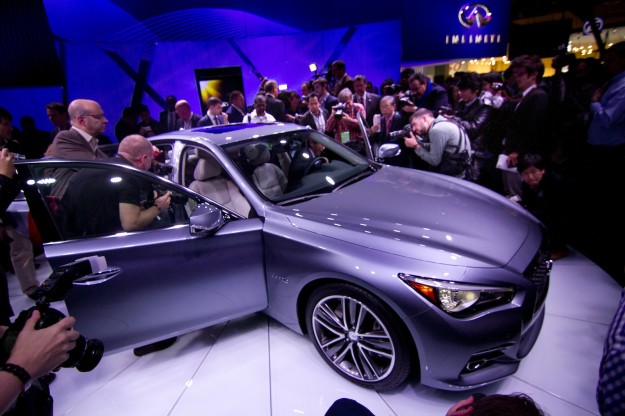
Questioned about the reasons for the introduction of Infiniti to Australia, despite the local market’s relatively small overall volume and high competition, de Nysschen said that regardless of those realities, expansion into new markets is critical to the brand’s future.
“Australia is an important market. It’s not only about the sales volume that one could potentially do in Australia, even though they would be relatively modest.
“Our customers are international. It’s important to us that wherever they meet and engage the brand that they experience the brand in the same premium fashion.
“So if you’re not present in important markets it somehow, I think, potentially dilutes people’s global impression of the brand. It is of strategic importance for markets like Australia – and I would perhaps even add South Africa and Brazil – goes beyond volume potential in those markets.”
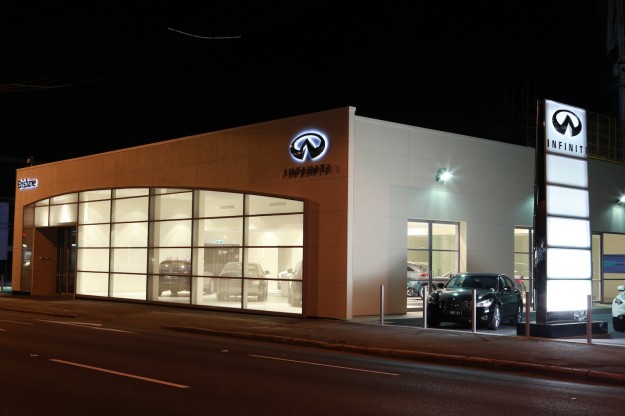
The head of Infiniti went on to outline the ways the brand needs to differentiate itself in the market.
“I think the German brands in particular are all occupying the same position in the market,” claimed de Nysschen.
“We would like to present Infiniti as the seductive alternative.
“We can deliver hospitality, coming from our Japanese roots, almost in a way that nobody else can.
“It’s part of our DNA. Then you will see very expressive design that we will certainly be able to carve out for us a very differentiated niche in the market.”
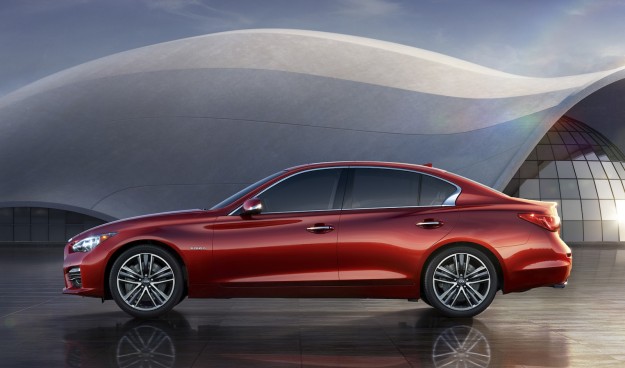
The Q50 sedan, shown at the Detroit auto show, is claimed to be the first step in a product and design renaissance for the brand, which launched in the US in 1989, but unlike close rival Lexus, hasn’t found traction in many other markets.
“We are building a brand,” re-iterated de Nysschen. “A brand that will become a stronger player in the premium sector. That is our priority.
“We will do that by strengthening our product range with models that are even more premium. We’ll do it by broadening our portfolio and moving into new market segments.
“By expanding our manufacturing footprint to new continents. And also by building on our existing presence in countries like the United States, China, Russia and in Western Europe.
“Part of building a brand is to also to build an aspiration for something that is not easily attainable. So we have to reflect that in our price position, and also keep supply quite tight.
“Not only is this new car [Q50] the first to bear our new nomenclature, it’s also the first to completely crystallise our future design, performance and technology direction.
“I have my sights on 2025, not at the end of this year.”
